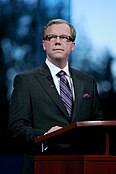Saskatchewan general election, 2011
|
|
||||||||||||||||||||||||||||||||||||||||
|---|---|---|---|---|---|---|---|---|---|---|---|---|---|---|---|---|---|---|---|---|---|---|---|---|---|---|---|---|---|---|---|---|---|---|---|---|---|---|---|---|
|
||||||||||||||||||||||||||||||||||||||||
|
|
||||||||||||||||||||||||||||||||||||||||
|
58 seats in the Legislative Assembly of Saskatchewan 30 seats needed for a majority |
||||||||||||||||||||||||||||||||||||||||
| Opinion polls | ||||||||||||||||||||||||||||||||||||||||
|
||||||||||||||||||||||||||||||||||||||||

|
||||||||||||||||||||||||||||||||||||||||
|
||||||||||||||||||||||||||||||||||||||||
The 27th Saskatchewan general election was held on November 7, 2011, to elect 58 members of the Legislative Assembly of Saskatchewan (MLAs). The election was called on October 10 by the Lieutenant Governor of Saskatchewan, on the advice of Premier Brad Wall. Wall's Saskatchewan Party government was re-elected with an increased majority of 49 seats, the third-largest majority government in the province's history. The opposition New Democratic Party was cut down to only nine ridings, its worst showing in almost 30 years.
This was the first Saskatchewan provincial vote to use a fixed election date, set on the first Monday of November every four years.
On election night, the incumbent Saskatchewan Party won 84% of the seats in the provincial legislature on the strength of 64% of the popular vote. In the process, they won the third-biggest majority government (in terms of percentage of seats won) in the province's history. The only bigger majorities came in 1934, when the Liberals won 50 out of 55 seats, and 1982, when the Tories won 55 out of 64. The NDP recorded its lowest share of the popular vote since 1938, when it was known as the Saskatchewan Co-operative Commonwealth Federation. The NDP was reduced to its smallest presence in the legislature since 1982, when the party won the same number of seats in what was then a larger assembly. Opposition leader Dwain Lingenfelter was unseated.
The Saskatchewan Party maintained their dominance of rural regions, and also broke the NDP's longstanding grip on the province's two largest cities, Regina and Saskatoon. The Green Party failed to win any seats – though they ran a full slate of 58 candidates and took third place in the overall popular vote, ahead of the Liberal Party. The Progressive Conservatives made a small gain in popular vote for the second straight election.
...
Wikipedia


